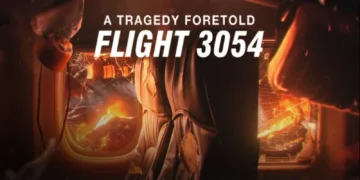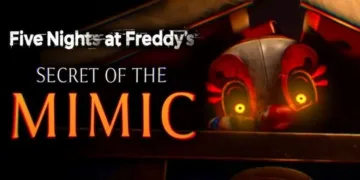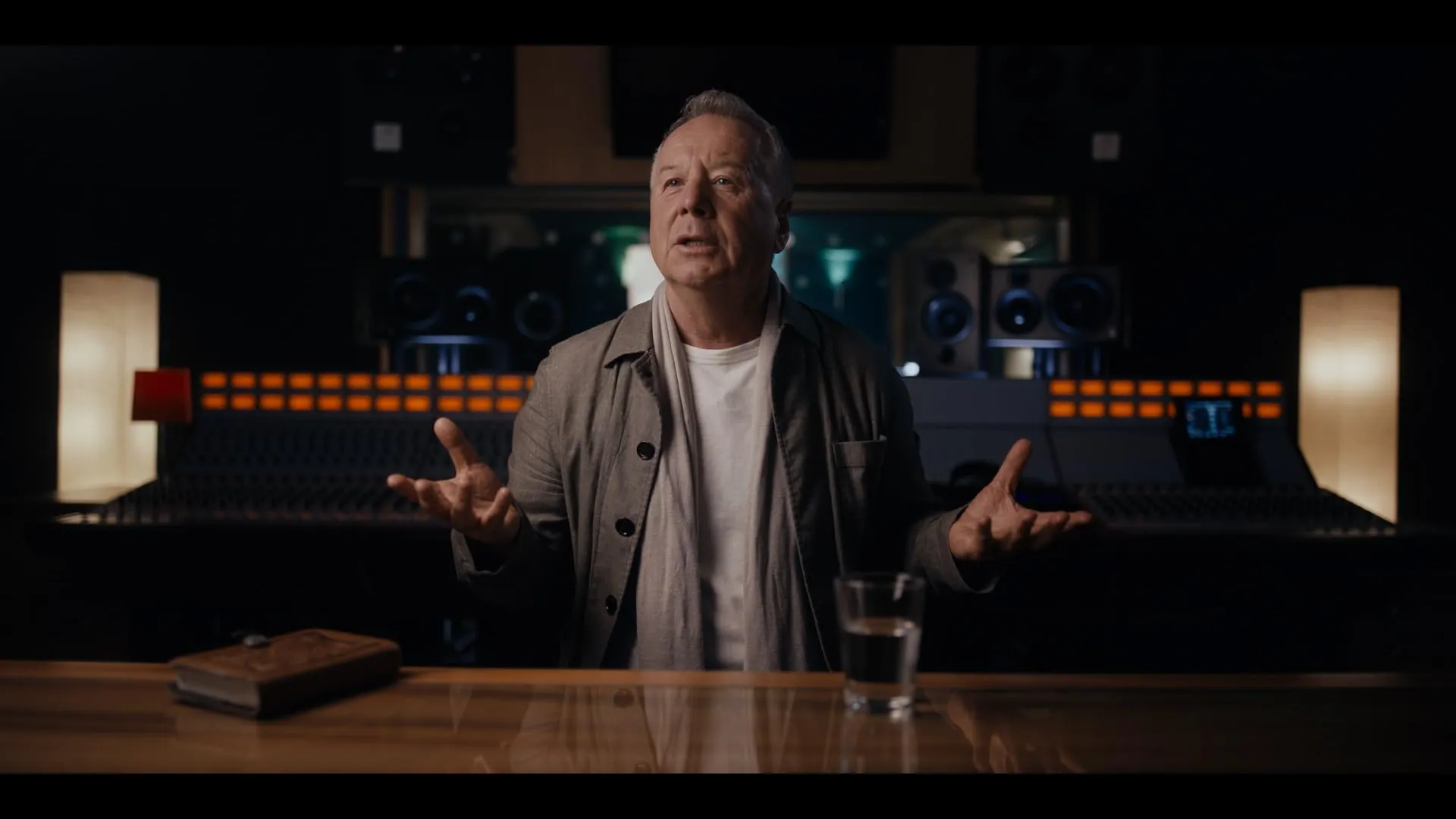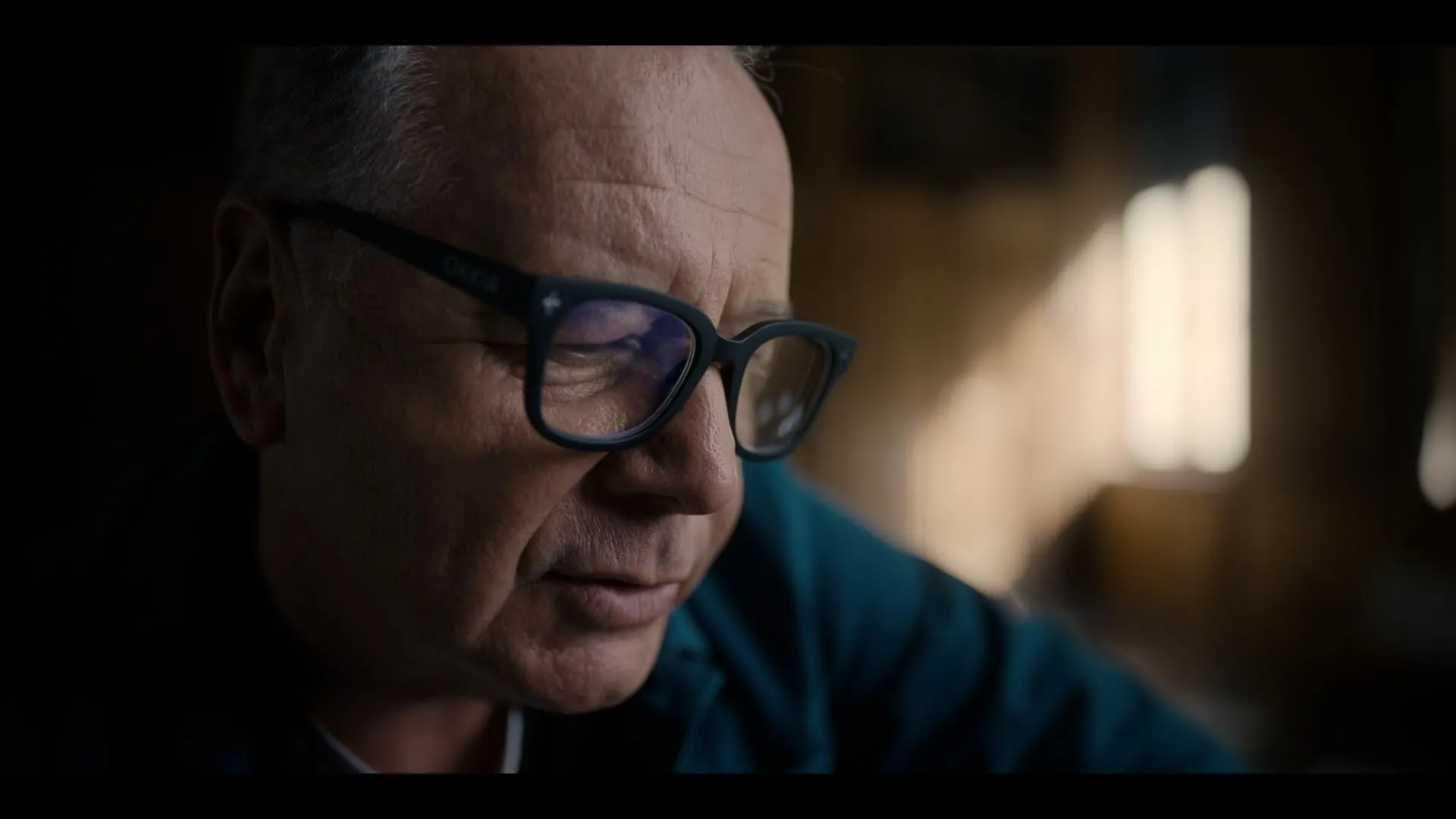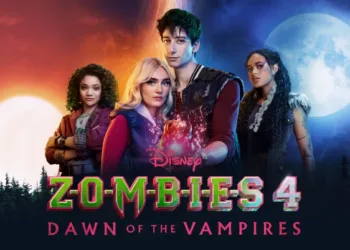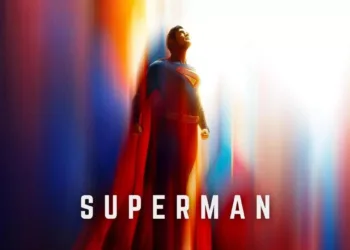Most music documentaries are about the rise and fall. Joss Crowley’s film, Simple Minds: Everything is Possible, is ostensibly about that, but its true narrative engine is the remarkable, fifty-year friendship between singer Jim Kerr and guitarist Charlie Burchill.
The film anchors their story in the Glasgow of their youth, a city of post-industrial grit that served as both a launchpad and a cage. You feel the city’s texture in their ambition. It wasn’t just about making music; it was about escaping a predetermined path.
There’s a touching moment where Kerr recalls his father pushing him toward the local library, seeing books as a ticket to a larger world. That sentiment fuels the entire film. It positions Simple Minds not just as a band that found success, but as two friends who willed a different life into existence through sheer persistence. The film suggests their greatest creation wasn’t an album, but the partnership itself.
The Accidental Anthem
The film maps the band’s calculated evolution with a rare appreciation for the business of finding a voice. This isn’t a romanticized tale of accidental genius. It portrays the band as sharp, focused musical architects, shifting deliberately from punk’s raw energy toward the atmospheric, synthesizer-heavy layers of art-rock and European disco found on albums like Empires And Dance.
Their work ethic is presented as relentless, a constant drive for improvement that feels more like an athletic pursuit than a purely artistic one. This focus on ambition is a refreshing turn for the genre. They were students of the game, watching what worked for others and applying it. The film details their UK breakthrough with “Promised You a Miracle,” but it’s the narrative around their biggest global hit that provides the most insight into their mindset.
I remember when “Don’t You (Forget About Me)” was inescapable; as the anthem for John Hughes’s The Breakfast Club, it was woven into the cultural DNA of a generation. The film reveals the delicious irony that the band, fiercely protective of their authorship, almost refused to record it.
Even now, decades later, Kerr discusses the track with a fascinating air of detachment, a man still slightly uncomfortable with the song that made him a household name. This tension—between artistic purity and the kind of megastardom only an MTV hit can provide—is the film’s most compelling early thread.
From the Summit to the Van
Once they reached the summit, the film effectively captures the dizzying scale of their world while keeping its subjects remarkably down-to-earth. Their performance at Live Aid is recounted not with rock-god bravado, but with Kerr’s charmingly human confession that his main memory of the historic day is being annoyed he wore the wrong trousers.
We learn they were introduced by Jack Nicholson and had the confidence to open with a new song, “Ghost Dancing,” a bold move on a global stage. This section finds its most compelling narrative friction in the arrival of American producer Jimmy Iovine.
His work with giants like Bruce Springsteen and Tom Petty gives his words weight when he bluntly tells the band their material isn’t good enough for American audiences. The film frames his pugilistic, no-nonsense approach as the challenge they needed. Kerr’s visible delight in being pushed is palpable; it led to the anthemic “Alive And Kicking” and their commercial pinnacle, the album Once Upon a Time. Following this peak, the film doesn’t shy away from the quieter years.
It pinpoints the Street Fighting Years album as a dramatic shift that lost them their American audience, beginning a commercial decline through the 90s. The image of Kerr, years later, driving in a van to a small club gig past a stadium he once sold out, is a powerful and honest reflection on the fickle cycles of fame.
The Polished Narrative and the Gaps Between the Notes
The documentary frames the band’s modern-day endurance as a form of hard-won redemption. We see Kerr and Burchill rationalize playing to smaller crowds, explaining how they reframed their purpose. The songs are no longer just hits; they are the sum total of their lives, and that realization demands their fullest commitment on stage, regardless of ticket sales.
It’s a self-aware and dignified adjustment. Yet, this is where the film’s structure as a curated narrative becomes most apparent, making it almost accidentally fascinating. It is a story told almost exclusively by its two survivors. While a timeline chart shows a constantly revolving door of key members like bassist Derek Forbes or keyboardist Mick MacNeil, their departures are glossed over with platitudes and no real explanation.
This glaring omission shifts the film’s function. It subverts the expectation of a tell-all retrospective, operating instead as an authorized, conflict-averse biography. You begin to question its ultimate purpose. Is this a truly reflective historical document, or is it a carefully polished piece of promotion for the current tour?
The film is a charming story of friendship, but its reluctance to explore internal drama makes the official narrative feel a bit too simple, leaving you to wonder if the most interesting parts of their story are the ones happening just off-screen.
Simple Minds: Everything Is Possible was released in U.S. theaters on June 13, 2025, with a streaming release on the same date. You can watch it on various platforms, including Amazon Prime Video, Apple TV, and through services like Fandango at Home. The film was also released in the UK on Paramount Plus UK on December 22, 2023.
Full Credits
Director: Joss Crowley
Writer: Joss Crowley
Producers: Joss Crowley, Lesley Douglas, Ian Grenfell, Elaine Hawkes, Des Shaw, Stuart Souter
Cast: Jim Kerr, Charlie Burchill, James Dean Bradfield, Richard Branson, Jerry Dammers, Dave Gahan, Mel Gaynor, Bobby Gillespie, Tarquin Gotch, Bob Geldof, Andy Gillespie
Director of Photography (Cinematographer): Will Billany
Editor: Tim Thompsett
The Review
Simple Minds: Everything is Possible
Simple Minds: Everything is Possible is a genuinely charming and often insightful portrait of a fifty-year friendship that survived the pressures of the music industry. Jim Kerr and Charlie Burchill are compelling subjects, and their story of ambition and endurance is engaging. However, the film's steadfast refusal to explore any internal conflict or include the voices of departed members makes it feel more like a sanitized celebration than a definitive documentary. It’s an enjoyable watch for fans, but leaves a critical viewer feeling that the most interesting parts of the story remain untold.
PROS
- A compelling and heartfelt focus on the central friendship between Jim Kerr and Charlie Burchill.
- Features moments of genuine self-awareness and honesty about the realities of fame and decline.
- Presents a strong sense of place, effectively rooting the band’s ambition in their Glasgow origins.
- Engaging anecdotes provide humanizing glimpses behind the rock-star facade.
CONS
- Feels deliberately one-sided by excluding the perspectives of many key former members.
- Avoids almost all internal conflict, resulting in a sanitized and incomplete narrative.
- Often functions more as a promotional piece for the current band than a critical documentary.
- Leaves the viewer with significant unanswered questions about the band's turbulent history.






















